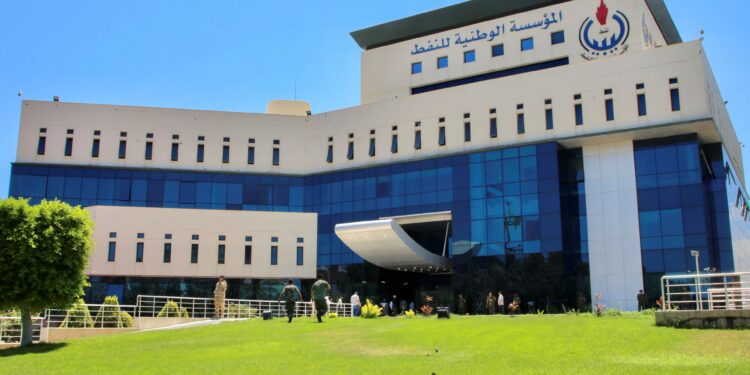1/2/2025–|Last update: 1/2/202512:59 AM (Mecca time)
The Chairman of the National Oil Corporation in charge of Libya, Masoud Suleiman, said that the Foundation will focus on increasing production and enhancing transparency, in light of the pursuit of the second largest oil producer in Africa to recover from many years of instability.
The National Oil Corporation, which is the governmental authority responsible for oil and gas production in the country, supervises a sector that has witnessed a sharp decline since the overthrow of the Libyan leader Muammar Gaddafi in 2011 due to armed conflicts and labor strikes.
Last year witnessed repeated declines in production as a result of differences between competing factions, which struggled on issues, including the leadership of the Libyan Central Bank, which controls Libyan oil revenues.
A strategic plan to increase production
In an interview with Reuters, Suleiman confirmed that the Foundation has a strategic plan to increase production, and will continue to implement it with the possibility of adjustments when needed.
According to the institution, Libyan oil production reached about 1.4 million barrels per day by the end of 2024, while Libya, a member of the oil exporting countries (OPEC) aims to reach the production of two million barrels per day in the long term.
The Minister of Oil and Gas in charge of Khalifa Abdel Sadiq had stated earlier last month to Reuters that Libya needs investments ranging from 3 and 4 billion dollars to raise production to 1.6 million barrels per day.
Enhancing transparency and restructuring the branches
Suleiman pointed out that strengthening transparency within the National Oil Corporation is one of its main priorities, explaining that this may require simplification of some administrative procedures, and perhaps closing some branches.
The Foundation has 15 fully affiliated companies, in addition to shares in joint projects and other companies under its supervision, according to its official website.
Suleiman said: “We will focus mainly on enhancing transparency within the institution, so that all investors, whether the Libyan state or foreign partners, have a high confidence in that any money pumped into the institution will be used in the best possible way.”
He added that foreign investors are still reluctant to pump money in Libya, which are still political divided between competing factions in the East and West, with external interventions from Turkey and Russia to support different parties.
A possible closure of some branches
Suleiman revealed that a comprehensive assessment of operations is still being conducted in some of the institution’s companies, such as the Mediterranean Oil Services Company, which is the logistical arm of the institution that purchases equipment and services for oil fields.
He added: “I may take studied steps to evaluate some branches and close some of them, especially the newly created branches.”
The Mediterranean Company has managed offices in Dusseldorf in Germany and Dubai since 2020, and has also opened an office in Istanbul last year, according to Libyan media reports.
Suleiman pointed out that the closure of some branches will make the administrative structure of the institution more efficient and easier to manage in the future.
The barter program is under review
Suleiman stressed that he was in contact with the Attorney General in Tripoli, who, as a precautionary procedure, requested the suspension of the sympathy program with crude oil, a system that the Foundation used to exchange crude oil with repeated derivatives as a way to finance its operations.
He added: “We are also in contact with the Central Bank of Libya and the government of national unity to determine the appropriate mechanism to provide adequate budget that guarantees the country’s entire supply with repeated oil derivatives.”
Transformations in the leadership of the National Oil Corporation
Suleiman’s comments to Reuters are the first indication of the possibility of closing offices affiliated with the institution, and it is also his first comment on the decision of the Attorney General to stop the work of the crude oil swap system in fuel.
Suleiman took office after mid -January, succeeding Farhat bin Qaddara, whose institution announced his resignation on the 16th of the same month, for reasons that it said was related to his health.
Although it is a member of OPEC, Libya is exempt from the production restrictions of OPEC Plus, which includes the members of the organization and its allies, such as Russia.
In a separate context, US President Donald Trump had called on the OPEC Plus group to reduce crude oil prices, which could put additional pressure on the producing countries, including Libya.



